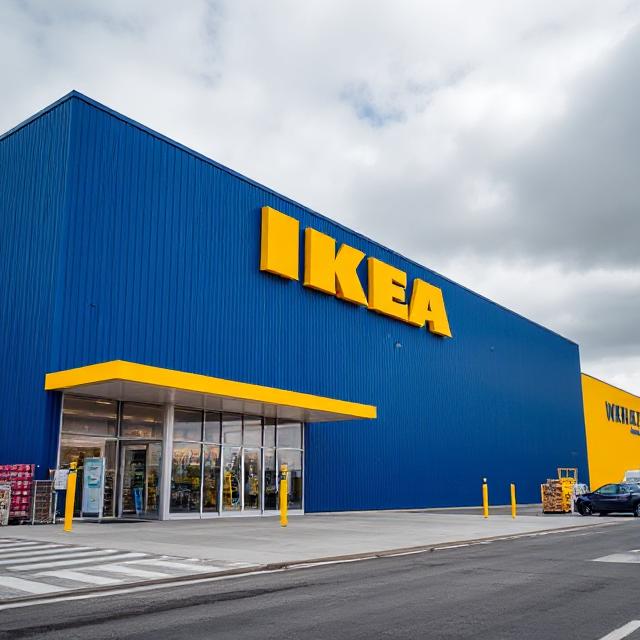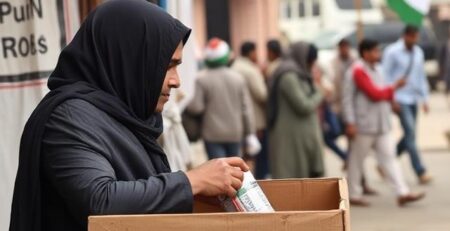IKEA Opens Its Doors to Delhi: Swedish Home Furnishing Giant Establishes First Physical Store in the Capital
What Does IKEA’s Delhi Store Launch Mean for Home Furnishing Enthusiasts?
The long-awaited moment has finally arrived for Delhi residents as IKEA India opens its first physical store in Delhi at Pacific Mall, Tagore Garden in West Delhi, spanning 15,000 square feet. This milestone marks a significant expansion in IKEA’s Indian journey, bringing the beloved Swedish home furnishing brand closer to millions of potential customers in the National Capital Region.
The IKEA Delhi store represents more than just another retail outlet; it signifies the brand’s commitment to making quality home furnishing accessible to Delhi’s diverse population. After successful ventures in Hyderabad, Mumbai, and Bengaluru, the Swedish furniture giant has strategically chosen West Delhi as its entry point into one of India’s largest consumer markets.
How Many Products Can Customers Explore at the New IKEA Delhi Store?
The store showcases over 2,000 products on display with nearly 800 items available for immediate takeaway, making it a comprehensive destination for home furnishing needs. This extensive product range caters to various customer preferences, from budget-conscious shoppers seeking affordable solutions to design enthusiasts looking for contemporary Scandinavian aesthetics.
The carefully curated selection includes everything from compact storage solutions perfect for Delhi’s space-conscious homes to larger furniture pieces that can transform living spaces. Customers can physically examine product quality, test functionality, and experience the tactile satisfaction that online shopping cannot replicate.
For items not immediately available, the store seamlessly connects to IKEA’s full online range, ensuring customers have access to the complete catalog through home delivery services. This hybrid approach combines the convenience of immediate purchases with the comprehensive selection of e-commerce.
Where Exactly is the IKEA Delhi Store Located and Why This Location?
The strategic placement of the IKEA Delhi store at Pacific Mall, Tagore Garden, reflects careful market analysis and accessibility considerations. West Delhi serves as a crucial residential and commercial hub, making it an ideal location for capturing both local customers and visitors from neighboring areas.
Pacific Mall’s established retail ecosystem provides the perfect environment for IKEA’s debut in Delhi. The mall’s existing footfall, parking facilities, and transportation connectivity ensure that customers can easily access the store without the typical Delhi traffic challenges that plague standalone locations.
This location choice also aligns with IKEA’s global strategy of integrating into existing shopping destinations rather than always requiring customers to make dedicated trips to isolated big-box stores. The compact 15,000 square feet format allows for efficient space utilization while maintaining the signature IKEA shopping experience.
What Unique Features Does the IKEA Delhi Store Offer?
Beyond the extensive product display, the store includes the Swedish Café serving classic IKEA snacks, making it a family-friendly experience in a compact format. This café component transforms shopping from a mere transactional experience into a leisure activity where families can spend quality time together.
The Swedish café offers authentic Nordic cuisine alongside IKEA’s famous meatballs, providing customers with a cultural immersion that extends beyond furniture shopping. This dining component often becomes a destination in itself, encouraging longer store visits and increased customer engagement.
The store also features IKEA’s signature room displays that showcase practical living solutions, helping customers visualize how products would look in their own homes. These inspirational setups provide design ideas while demonstrating the versatility and functionality of IKEA’s product ecosystem.
How Has IKEA’s Journey in India Led to This Delhi Expansion?
IKEA has been sourcing from India for the last five decades, though it started its retail operation in India in 2018 by opening its first store in Hyderabad. This deep-rooted connection with Indian manufacturing has given IKEA unique insights into local preferences and quality expectations.
The company’s gradual expansion strategy across major Indian cities has allowed for systematic learning and adaptation. Each new market entry has refined IKEA’s understanding of Indian consumers’ needs, preferences, and shopping behaviors, culminating in the carefully planned Delhi debut.
IKEA’s expansion plans are ambitious, with the company planning to open 25 stores in India by 2025. The Delhi store represents a crucial stepping stone in achieving this target, particularly given the National Capital Region’s significant market potential and influence on national retail trends.
Why Did Delhi Residents Wait So Long for IKEA’s Physical Presence?
The anticipation for IKEA’s arrival in Delhi has been building for years, with residents frequently asking “IKEA when?” as other major cities welcomed the Swedish brand. IKEA initially served Delhi-NCR through online operations, which provided some access but lacked the full experiential shopping that IKEA is known for worldwide.
The delay in establishing a physical presence stemmed from various factors including real estate availability, regulatory considerations, and IKEA’s methodical approach to market entry. The company prefers to establish strong operational foundations before expanding, ensuring each new location meets their global standards for customer experience.
Delhi’s complex retail landscape, with its mix of traditional markets, modern malls, and emerging e-commerce preferences, required careful study to determine the optimal entry strategy. The current format represents IKEA’s evolved understanding of Delhi consumer behavior and market dynamics.
What Impact Will This Have on Delhi’s Home Furnishing Market?
The IKEA Delhi store’s opening is set to significantly influence the local home furnishing landscape. Traditional furniture retailers now face competition from a global brand known for innovative design, quality assurance, and competitive pricing. This market entry will likely drive overall quality improvements and price competitiveness across the segment.
Local artisans and manufacturers may find new opportunities for collaboration, as IKEA has consistently emphasized local sourcing and supporting indigenous craftsmanship. The company is committed to growing the Indian manufacturing landscape and exploring sustainable indigenous materials such as bamboo, jute and wood.
The store’s presence will also influence consumer expectations regarding product variety, design innovation, and shopping experience. Delhi customers, now exposed to IKEA’s distinctive approach to home furnishing, may demand similar standards from other retailers.
How Does This Store Format Differ from Other IKEA Locations?
The Delhi store’s 15,000 square feet format represents a more compact approach compared to IKEA’s traditional large-format stores. This adaptation reflects urban space constraints and shopping pattern preferences in Delhi, where customers often prefer focused, efficient shopping experiences.
Despite the reduced size, the store maintains IKEA’s core experiential elements including room displays, product demonstrations, and the signature navigation system that guides customers through different home categories. The challenge of condensing IKEA’s extensive range into a smaller space has resulted in innovative display techniques and space optimization.
This format also serves as a testing ground for IKEA’s future urban expansion strategy in India. Success in Delhi could lead to similar compact stores in other major cities where real estate costs and space availability pose similar challenges.
What Services and Support Can Customers Expect?
Beyond product sales, the IKEA Delhi store offers comprehensive customer support including design consultation services, assembly assistance, and personalized home furnishing advice. These services differentiate IKEA from purely transactional retailers by providing value-added expertise.
The store’s connection to IKEA’s broader ecosystem means customers can access online resources, mobile app features, and extended product ranges. Home delivery services ensure that larger purchases reach customers safely and efficiently, addressing one of the primary concerns for furniture buyers in Delhi.
Customer service extends to after-sales support, including spare parts availability, product recalls when necessary, and warranty services. This comprehensive approach builds long-term customer relationships rather than focusing solely on individual transactions.
How Will This Impact IKEA’s Future Plans for Delhi-NCR?
The Tagore Garden store serves as a beachhead for IKEA’s broader Delhi-NCR ambitions. Success at this location will inform decisions about additional stores, optimal formats, and service offerings for the region. The company has already begun work on stores in Gurugram and Noida, indicating serious long-term commitment to the market.
The learnings from Delhi’s unique consumer behavior, traffic patterns, and preferences will shape IKEA’s approach to other North Indian markets. Delhi’s cultural influence and market significance make it a critical testing ground for strategies that could be replicated across similar urban markets.
Future expansion may include different store formats, enhanced digital integration, and localized product offerings that better serve North Indian preferences while maintaining IKEA’s global design standards.
What Does This Mean for Indian Retail and Consumer Behavior?
IKEA’s Delhi entry represents a broader transformation in Indian retail, where international brands are adapting their global concepts to local market realities. The success of this hybrid approach—combining physical experience with digital convenience—could influence other international retailers’ India strategies.
The store’s emphasis on experiential shopping, design inspiration, and lifestyle enhancement rather than mere product sales reflects evolving Indian consumer expectations. Urban Indians increasingly value experiences and design aesthetics, trends that IKEA’s presence will likely accelerate.
This development also showcases the maturation of Indian retail infrastructure and consumer sophistication, demonstrating that global brands can successfully adapt their premium offerings to Indian market conditions while maintaining their core value propositions.
The opening of IKEA’s first Delhi store marks a significant milestone in both the company’s Indian journey and Delhi’s retail evolution. As customers explore the 2,000+ products and experience Swedish design philosophy firsthand, this launch sets the stage for a new era of home furnishing in the National Capital Region.












